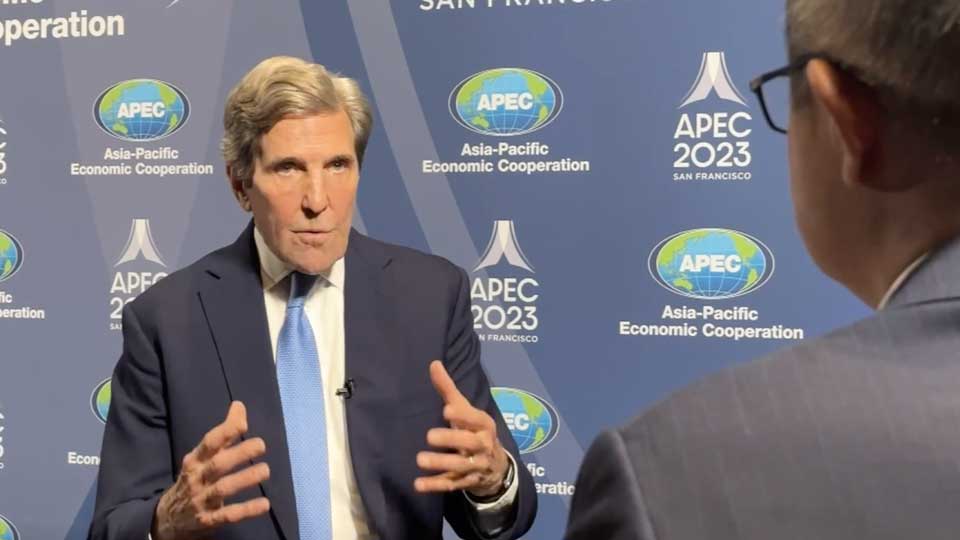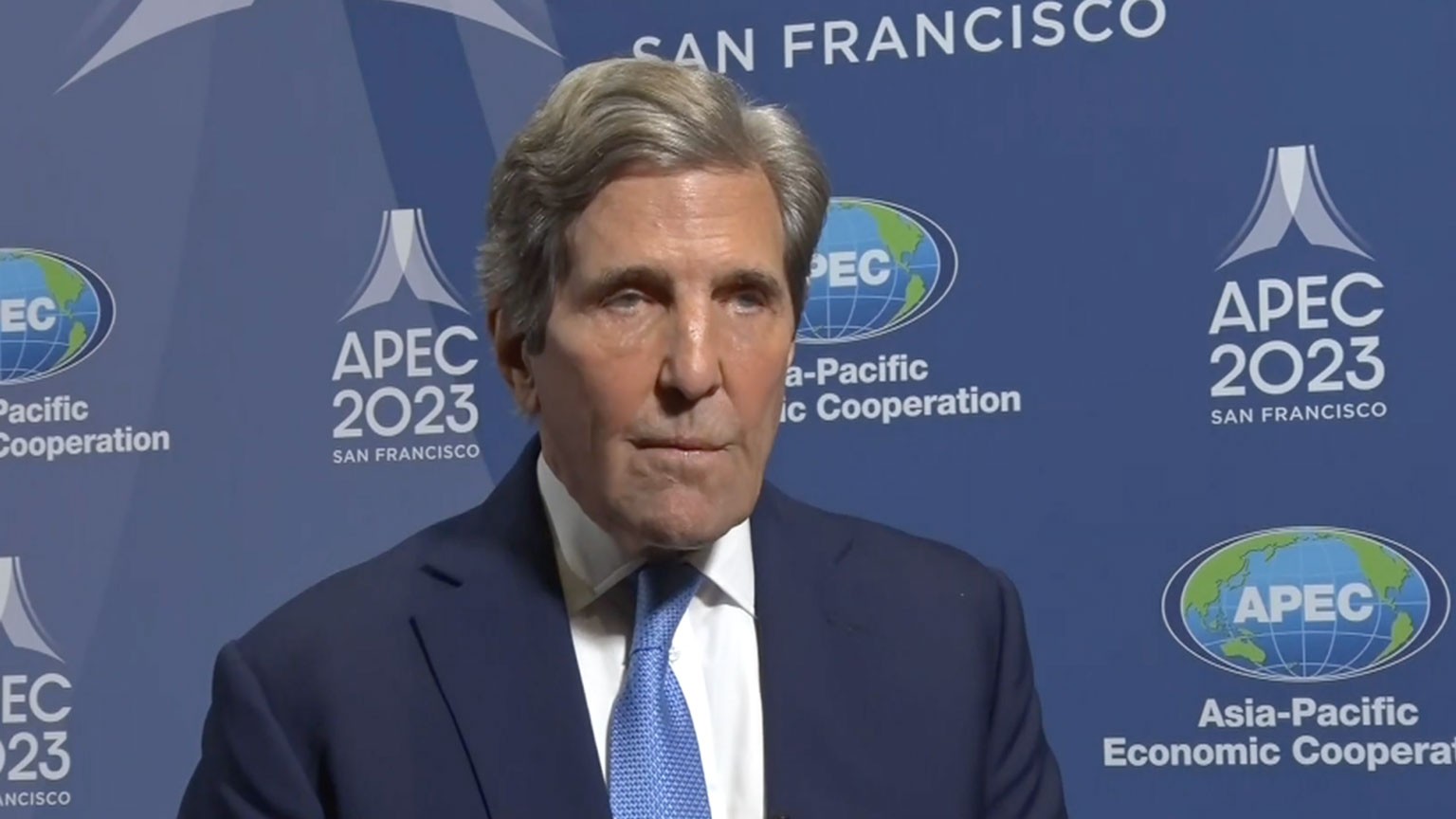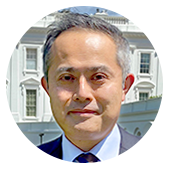Takagi Masaru: On November 15, US President Joe Biden and Chinese President Xi Jinping agreed on the importance of working together to accelerate efforts to tackle the climate crisis in this critical decade. What kind of concrete actions can we expect to see between the two countries based on the leaders' dialogue?
John Kerry: Based on the leaders' dialogue and on the agreement that we negotiated with the Chinese, there will be a working group that will come together in order to cooperate on programs, in one country or the other, that can get the job done on climate. And importantly, it was agreed that there will be a big deployment of more renewables so as to be able to anticipate a reduction of emissions, which will move the process more rapidly.
We all need to be doing more, faster. China and the United States agreed on that, and so not only will we be deploying more renewables, but we'll be working with respect to methane. We will work together announcing at the COP28 that we are going to be able to find a way to deal with the emissions much more rapidly, and also to include all greenhouse gases in the reduction efforts. That hasn't been true up until now. So that means that methane, for instance, will now be one of the targets that we have to pursue to get the job done.
Takagi: Do you think the talks between Biden and Xi created room to accelerate what’s happening regarding climate change?
Kerry: I think that the meeting was very constructive, very positive. I was there, listening very closely to what both leaders said. And I think everybody came out of there feeling like it was a good step forward.
Takagi: The Biden administration has been restricting the export of cutting-edge technologies to China due to concerns of military expansion. However, these export controls could prevent progress to combat climate change. How can the US balance tackling climate change with national security interests?
Kerry: National security is always protected, and people are very careful about it. But climate technology is not weapons technology. It's not that sophisticated. In some cases, climate technologies are a wrench, a bolt and nuts, and you have to tighten the leak. It's plumbing in a lot of cases. And the truth is that I think we have the ability to be able to always determine if there is a national security interest. We have mechanisms for doing that. We have a committee that looks very closely at some of the technology transfers, and I think you won't see that happening.
People will be alert. But most climate technology is available in the open marketplace nowadays, like scrubbers and the way you reduce emissions from coal plants and try to prevent those emissions from going up. And I think things like stopping flaring, literally turning off the flaring of gas, which just burns it. Up it goes into the atmosphere, it's greenhouse gas. The problem with that is, it produces CO2 also, so it's damaging. I think if you can reduce that, then you're making a huge step forward together without violating any kind of security. And in fact, you're providing more security by doing it.
Takagi: What do you think is the primary goal of the United States going into the COP28 conference?
Kerry: Well, we want it to be successful by virtue of raising the ambition for reducing emissions. And I think it's very important that countries come with strong NDCs, that's the national contribution to reduction, and that they're committed to try to raise the ambition across the board. There's the first stock that we'll take, which is a valuation of where we are, where we've been, where we need to go. That will be a very important part of the COP.
There will be a methane event that we will do with China, a very important part. There will also be a loss and damage fund that will be stood up, and there will be an adaptation initiative that will increase adaptation around the world. Those are all really important things.
There also will be some new finance mechanisms. And that's really important because a lot of countries need help to be able to transition. So I think it has the potential to be a really good COP. Now, we think all the gas companies need to be part of the solution, and we hope they will come with ambitious plans. If they don't, then that's not good enough. We need people who are bringing real ambition to the table.


